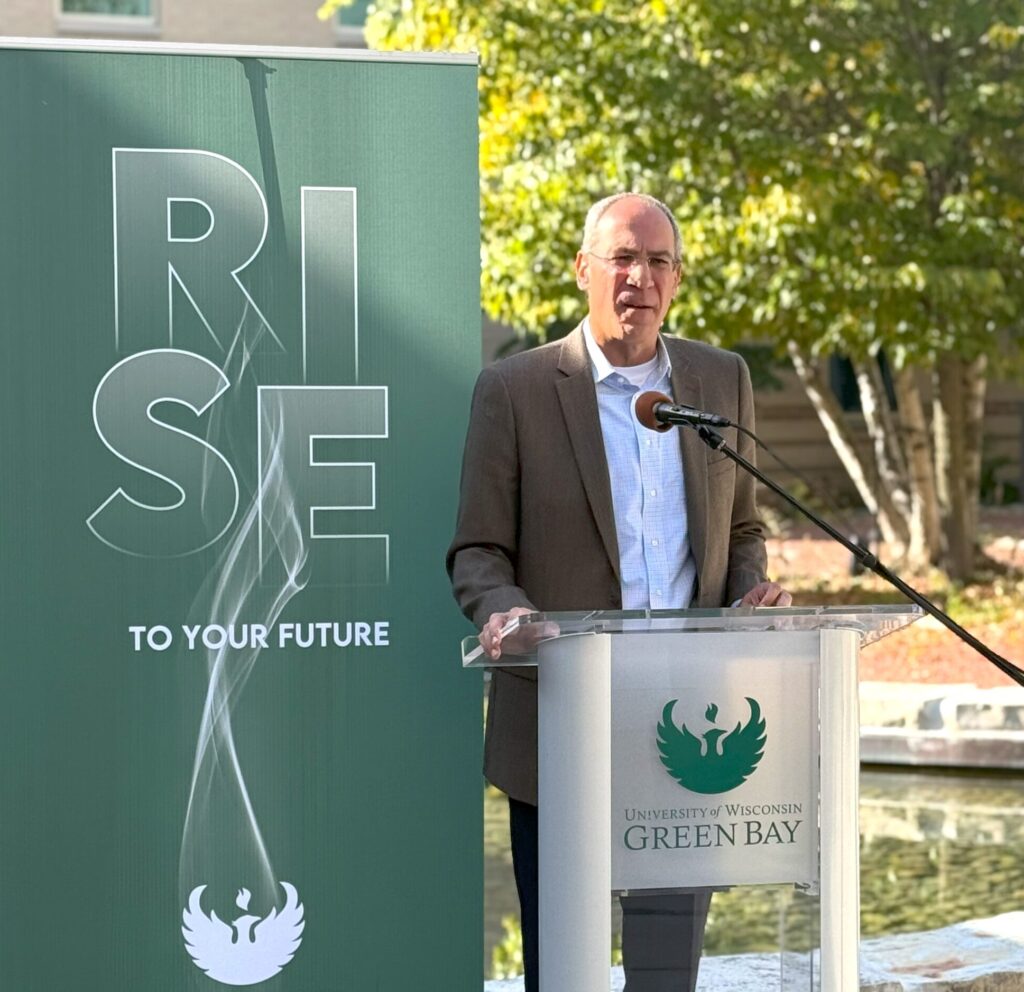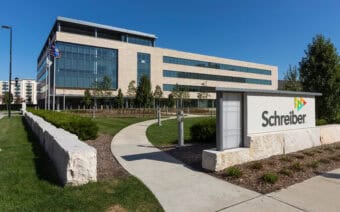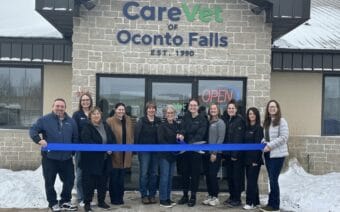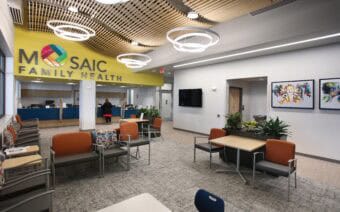
October 20, 2025
GREEN BAY – The University of Wisconsin-Green Bay (UWGB) and the UWGB Foundation have teamed up with gener8tor – a global venture firm and start-up accelerator – in an effort to create new opportunities for local entrepreneurs.
Joe Kirgues, founder at gener8tor, said the gBETA UWGB pre-accelerator program will focus on early-stage companies working across all industries.
“We’re thrilled to be partnering with UWGB,” he said. “Chancellor Michael Alexander has been doing everything he can to help the region compete. To get invited to partner with them and have a chance to participate is a dream come true.”
Kirgues said the free, seven-week, no-equity accelerator program provides start-up founders with concierge coaching and programming, along with access to a large network of mentors, customers and investors.
“The program is designed to set a path for start-ups to participate in equity-based accelerator programs and investment opportunities,” he said.
As for the type of businesses that might apply, Kirgues said organizers are searching for ones looking to grow.
“The more the founder thinks they have the potential to benefit from our network and resources to achieve high growth in the next 24-36 months, the more we think they could be a good fit,” he said. “Start-ups from the UWGB campus, including faculty, students and alumni, will be invited to apply.”
Kirgues said though there is no direct money given to start-ups through the program, the partnership aims to work on pulling together equity and accelerator resources in the future.
Start-up recruitment for the inaugural gBETA UWGB program, Kirgues said, has already begun, with the seven-week program set to kick off Oct. 28.
“With any community we work with, our goal is to always make it a multi-year partnership,” he said. “If you can design and pull together a partnership at the outset, our goal is to keep the programming going forward.”
Kirgues said he’s confident the partnership with UWGB will thrive, citing the region’s vast potential and the opportunity to help develop the next generation of community and corporate leaders.
Whether it’s the strengths one can see on paper or the deeper qualities that lead to real success, the UWGB and the Greater Green Bay area, he said, brings both.
“We are so fortunate to be amongst their partners,” he said.
Start-up companies and founders interested in applying or learning more about gBETA UWGB, or similar programming and resources, Kirgues said, can visit gener8tor.com.
Gener8tor = past success
If the numbers point to anything, Kirgues said gener8tor’s history shows multiple successes as an accelerator program.
Starting 13 years ago, he said the goal of gener8tor has always been to be the best partner it can be.
According to gener8tor.com, almost 350 accelerators have been completed, which relates to working with about 1,600 start-ups.
“This accelerator supports five to seven start-ups per cohort and requires no fees for start-ups and takes no equity,” Kirgues said.
gener8tor partners with companies, governments, universities and nonprofits, Kirgues said, operating programs and conferences in more than 45 communities across 23 states and two countries.
Getting its start in Milwaukee and Madison, he said the program covers a wide range of industries, including e-commerce, biotech and more.
“[Today, we] even have different types of programming,” he said. “We run an investment accelerator, a contract accelerator called gBETA and a program for skills. Though we offer multiple things, the company’s flagship product is for start-up accelerators.”

At its core, Kirgues said, gener8tor brings a multinational accelerator model directly into communities, with a dedicated focus on uplifting and investing in local entrepreneurs.
“The partnership aims to lay the groundwork for a broader regional innovation ecosystem,” he said. “This initiative arrives at an opportune moment as UWGB continues to build on its momentum and further connect what it does to the economy and quality of life of Northeast Wisconsin.”
Brown County impact
Brown County Executive Troy Streckenbach said the gener8tor partnership with UWGB is a win-win for all parties involved.
“Anything we can do to encourage companies to start up and take root in Brown County or Northeast Wisconsin is a major benefit to the long-term community viability,” he said. “Companies are starting up across the United States in communities that create the infrastructure – that’s critical when looking at the long-term plan.”
When infrastructure is in place, Streckenbach said it lays the foundation for small businesses to launch, thrive and achieve sustainable growth.
“If those things are in place, those are the communities that land those businesses,” he said. “This is about job creation. This is about creating the next business that’s going to encourage their workforce to volunteer and give back to the natural evolution of any business.”
When a business idea begins to take shape, Streckenbach said communities have a responsibility to support the entrepreneurs driving it forward.
“Eventually, there is an exit strategy, and not all of those exit strategies always mean businesses and entrepreneurs are going to remain in Brown County,” he said. “Obviously, we’ve seen this happen in Brown County, and that’s not a problem. We should celebrate anybody’s success, but the reality and the question is, ‘What are we doing as a community to make sure we’re planning, encouraging and seeding the next generation of entrepreneurs in Brown County?’”
Streckenbach said knowing the history of gener8tor and its success in other markets should lead to success with the partnership.
“The accomplishments they’ve had in this program are pretty astonishing,” he said. “We’re hoping that can be duplicated right here in Brown County, and we’ll have businesses take root and ultimately add to the overall economic development and benefit of the county.”
In addition to building strong infrastructure, Streckenbach said a region must also offer a high quality of life to effectively attract and retain talent.
“Northeast Wisconsin certainly checks that box,” he said. “We continue to see population growth overall, so access to workforce development is critical. Having a university [like UWGB] that is growing in certain areas, specific to what workforce demands are, is critical for long-term success.”
 Wisconsin Aluminum Foundry celebrates 115 years of manufacturing
Wisconsin Aluminum Foundry celebrates 115 years of manufacturing Badger Liquor: Where ‘good relationships’ fuel success
Badger Liquor: Where ‘good relationships’ fuel success








